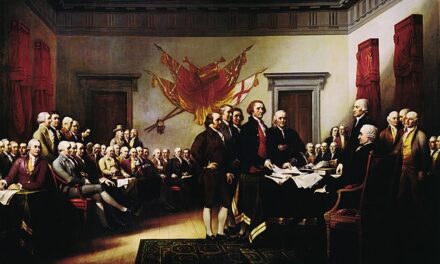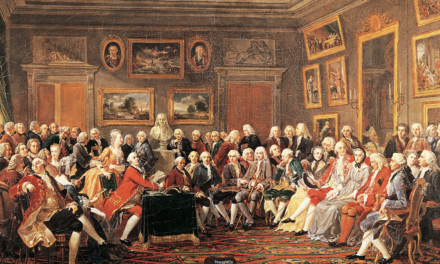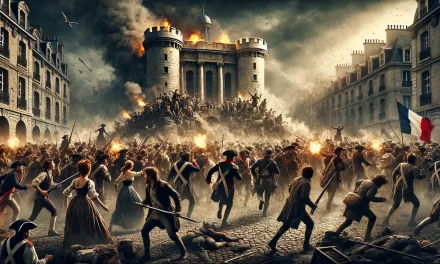Stories are everywhere
In “This is Water”, the author David Foster Wallace tells this story. “There are these two young fish swimming along, and they happen to meet an older fish swimming the other way, who nods at them and says, “Morning, boys. How’s the water?” And the two young fish swim on for a bit, and then eventually one of them looks over at the other and goes, “What the hell is water?”.
He used the quote when talking to graduating students about the nature of culture. But he could just as easily have used the story to talk about story itself.
We human beings are completely immersed in stories. And not just the obvious ones like the fiction we consume so avidly in novels, films and TV dramas. Jonathan Gottschall, author of “The Storytelling Animal” puts it this way, “Humans are creatures of story, so story touches nearly every aspect of our lives. Archaeologists dig up clues in the stones and bones and piece them together into a saga about the past. Historians, too, are storytellers. Some argue that many of the accounts in school textbooks, like the standard story of Columbus s discovery of America, are so rife with distortions and omissions that they are closer to myth than history. Business executives are increasingly told that they must be creative storytellers: they have to spin compelling narratives about their products and brands that emotionally transport consumers.”
To the entertainment industry, of course, stories are big business. Film studios, publishers and TV Networks invest large sums of money in the hope of discovering money spinners. Books such as “Into the Woods” reveal the formula for a successful movie plot and once you have recognized it, you can’t fail to see it repeatedly in the films you watch. And Christopher Booker’s superb “The Seven Basic Plots” shows how just seven variations account for the whole range of fiction from the most primitive writings of the Ancient Near East right up to current literature.
If we are surrounded by stories, however, that is only a part of the picture. Stories are not only “out there” if personality theorists are correct, they are also “in here” – providing the compass by which we live our lives. As Dan P. McAdams writes in “The Art and Science of Personality Development”, “You are a novel. You are an extended prose narrative featuring a main character. As a social actor, the protagonist of your story plays many different roles and displays many different traits across a range of social situations. As a motivated agent, the main character pursues personal goals over time, driven by value and necessity, constantly changing yet remaining somehow the same, moving across a temporal landscape of consciousness. You are the entire novel itself, and you are the novelist; you live the story as you write it.”
Stories play a part in the cultural evolution of homo sapiens

And stories are not just all around us and within us as well, they have played an important part in the cultural evolution of our species, and the unprecedented impact of our species on our home planet. This is how Yuval Noah Harari explains it in his best-selling “Sapiens”, “Fiction has enabled us not merely to imagine things, but to do so collectively. We can weave common myths such as the biblical creation story, the Dreamtime myths of Aboriginal Australians, and the nationalist myths of modern states. Such myths give Sapiens the unprecedented ability to cooperate flexibly in large numbers. Ants and bees can also work together in huge numbers, but they do so in a very rigid manner and only with close relatives. Wolves and chimpanzees cooperate far more flexibly than ants, but they can do so only with small numbers of other individuals that they know intimately. Sapiens can cooperate in extremely flexible ways with countless numbers of strangers. That’s why Sapiens rule the world, whereas ants eat our leftovers and chimps are locked up in zoos and research laboratories.”
Professor Harari is a historian, but this is not just a historian’s point of view. Neurologists such as Kevin Laland in “Darwin’s Unfinished Symphony” and evolutionary biologists like David Sloan Wilson in “Darwin’s Cathedral” both emphasise the role of stories in the cultural development of both the human brain and human society.
There is a dark side to stories
But stories haven’t always been an unqualified good for our species. For example, rival origin stories have underpinned the conflict between science and religion in USA for the past century or so. And in such cases, the power of stories to “imagine things collectively” reinforces the desire that all we human beings have to sort ourselves into groups. “And once we identify ourselves as members of a particular group,” writes David Berreby in his award-winning book ‘Us & Them: The Science of Identity’, “we tend to feel more comfortable with others of our own kind.” This feeds into our tribal sense, which tells us who we are, how we should behave, and links us to others in the past and in the future. It is such a powerful force in our individual and collective lives that in the extreme, we identify so strongly with a religion, a nation, or a race that we are willing to die for, or to kill for it. As the News media remind us daily.
The trouble is that once we have linked a particular story to our identity, we are no longer open to evidence that casts doubt on its truth. We don’t use our formidable powers of intelligence and rationality to decide whether or not we are right to identify so strongly with it. On the contrary, we scan the evidence selectively for anything that supports our pre-existing point of view. And since most evidence, scientific or otherwise, contains at least a small degree of ambiguity, it usually seems to us to confirm what we already believed to be true.
Using stories wisely
So, are we the masters of our stories, or are we enslaved by them? In terms of our search for wisdom, it is surely an important question, regardless of our perspective.
From our shared point of view as human beings, there are questions of political and geo-political significance that are at stake. As Jonathan Haidt asks in the final chapter of his excellent book, ‘The Righteous Mind: Why Good People are Divided by Politics and Religion’, “Can’t We All Disagree More Constructively?”. Pulling together the kind of evidence that this article has touched upon, Haidt suggests that at least a part of this solution is to recognise the wisdom found in stories of people you disagree with. He recognises both the balance and the tension between the “yin” and the “yang” of conflicting viewpoints. This isn’t easy, as Marcus Peter Rempel demonstrates in an extraordinary account of communities and individuals who have tried to put this into practice. “Life at the End of Us Versus Them”. For good reason, the book is sub-titled “Cross Culture Stories”.
To managers and leaders, Karl Weick in ‘Making Sense of the Organization’ has this to say, “Stories are important, not just because they coordinate, but also because they register, summarize, and allow reconstruction of scenarios that are too complex for logical linear summaries to preserve. Stories hold the potential to enhance requisite variety among human actors, and that’s why high reliability systems may handicap themselves when they become preoccupied with traditional rationality and fail to recognize the power of narrative rationality.” You could say that stories form the link between ‘facts’ and ‘meaning’, as the following diagram illustrates.

Finally, there is the perspective of faith. “Throughout the history of our species, sacred fiction has dominated human existence like nothing else. Religion is the ultimate expression of story’s dominion over our minds. … Religion is a human universal, present—in one form or another—in all of the societies that anthropologists have visited, and archaeologists have dug up,” writes Jonathan Gottschall in “The Storytelling Animal”. Religion is perhaps one area in particular where we need to think carefully and wisely about the stories that we choose to identify with.
Two books in particular offer help in this to Christians who are seeking to reconcile the stories in the Bible with the accounts of creation that scientists tell today. Drawing on the work of Thomas Berry, Yale University’s far-reaching “Journey of the Universe” offers an origin story that is compatible with both religious faith and scientific evidence. On a more personal level, Richard Holloway who was Anglican Bishop of Edinburgh from 1986 to 2000, has written most movingly of his personal search for wisdom in “Stories We Tell Ourselves”.
In it, he asks an excellent question with which to end this article: “Given that the universe is what it is – however you understand it – what are you going to do about it? How have you personally decided to respond? What story have you decided to live by?”







Hi Terry,
Is faith itself not simply, as in the final paragraph, “the story one decides to live by”?
Hi Colin,
That is very much the conclusion I have come to. I have become sceptical all claims to “eternal truth”, contained in documents, people or institutions. On the other hand, I am confident that there is much wisdom to be found in the world’s great spiritual traditions. Both the testimony of witnesses, and my own life’s experience contribute to this confidence. But, just as all scientific knowledge is provisional, and all scientists ‘reserve the right to get smarter’, so do many seekers after wisdom in spiritual realms – whether followers of Jesus (as I am, and as Richard Hollowayis, whose latest book inspired this post) or of Buddhist faiths.
Thanks for engaging with the post.